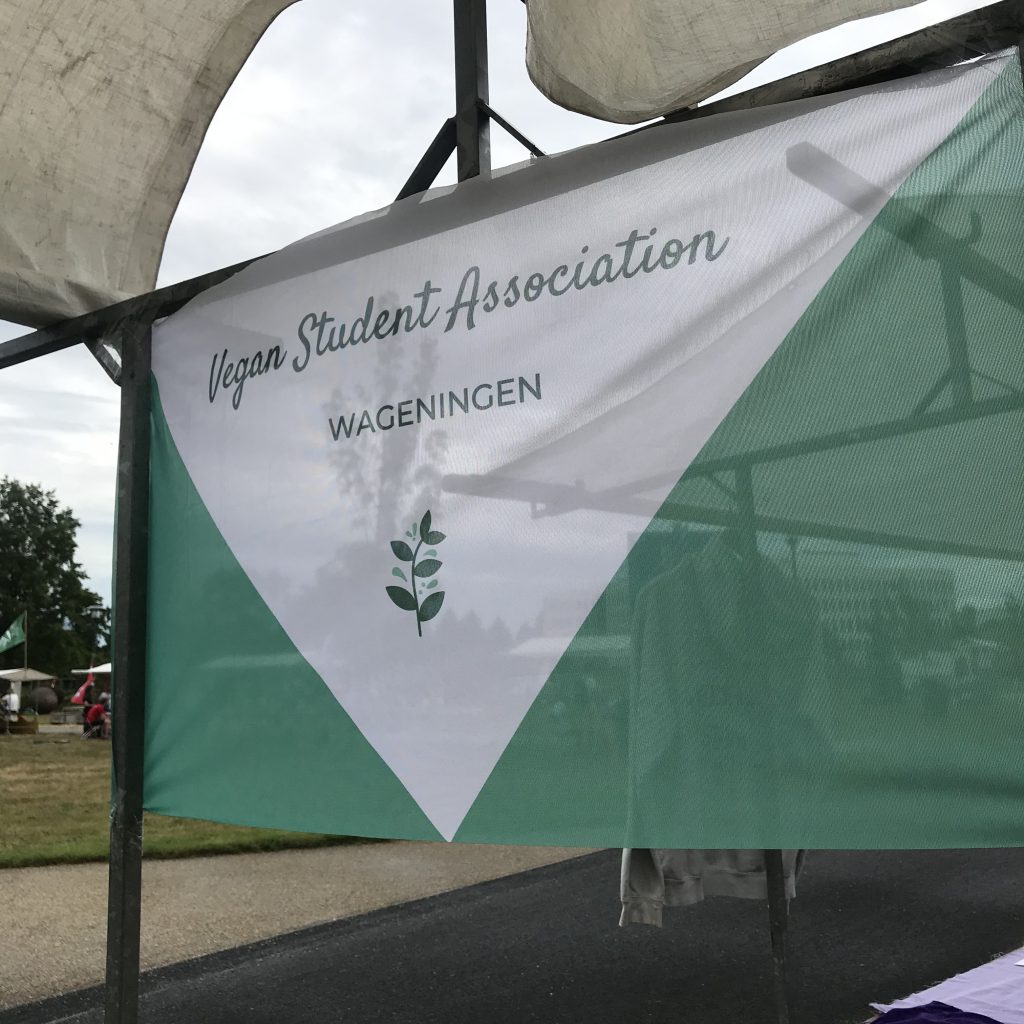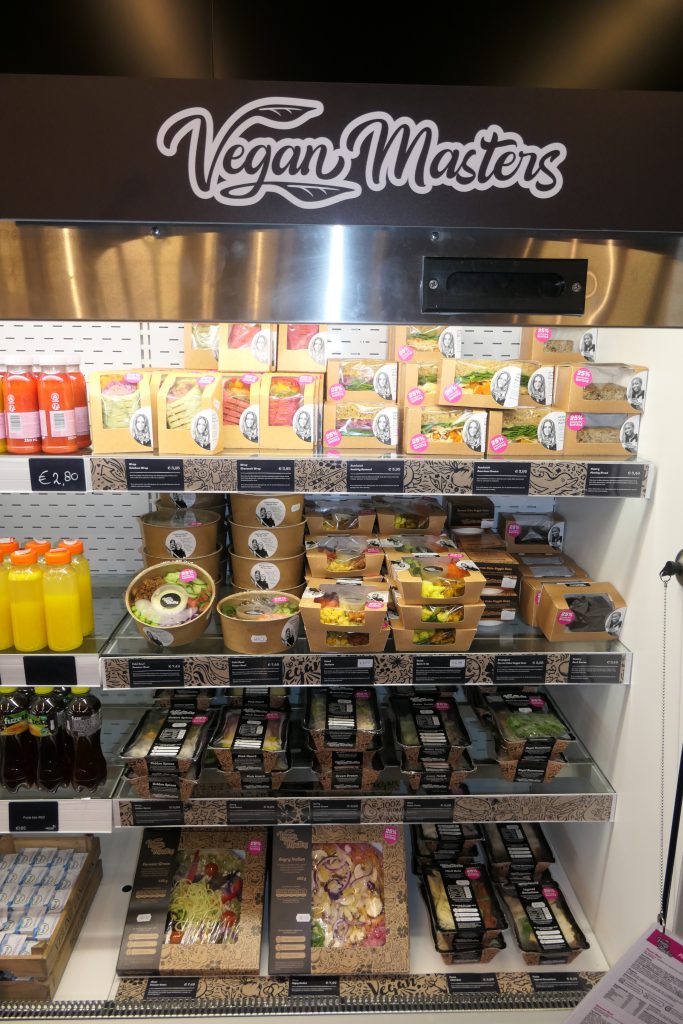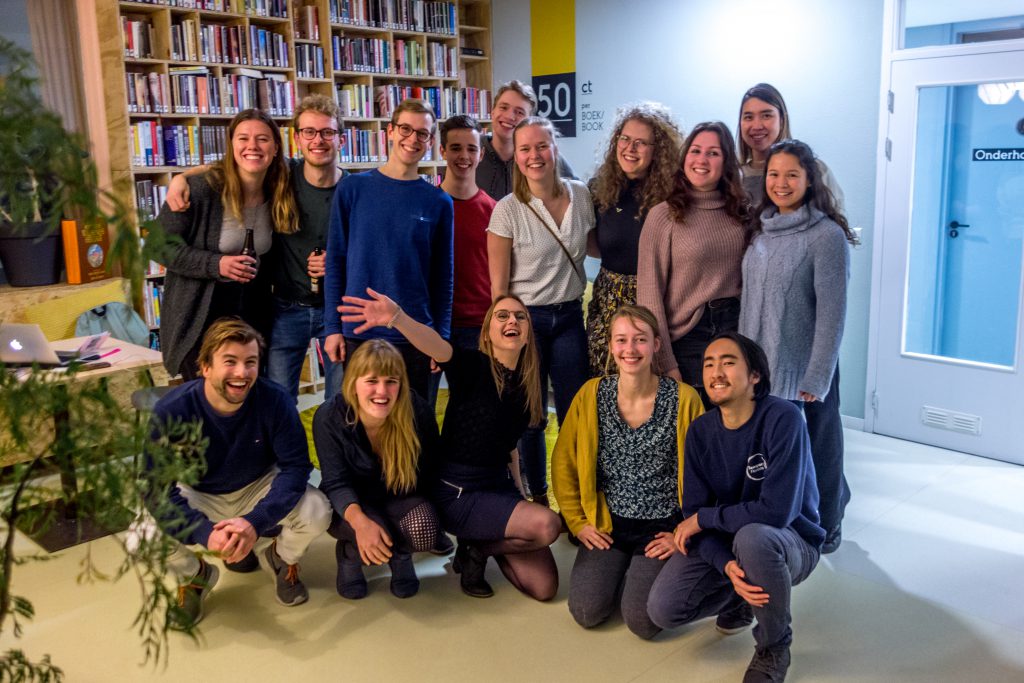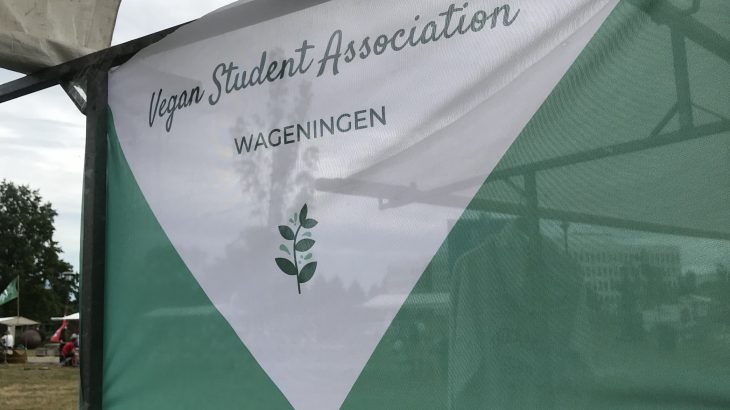Vegan in Wageningen: What is it like?
Wageningen University’s own web page proudly boasts that it is the only university in the Netherlands to focus on the theme of ‘healthy food and living environment’. Everyone studying or working here is already well acquainted with the notion that the food we eat does not only affect our health, but also impacts our environment. This means that many of us try to increase the sustainability of our diet during the course of our studies. Some proactively eliminate animal products from their diet entirely – they become vegan. Veganism is often surrounded by controversy because unlike a regular diet, it is also an ideological choice, eliciting defensive reactions even when it is not being argued for.
How is the vegan experience in Wageningen? The Sustainability Blog sat down with Eva Everloo (MSc Nutrition and Health) and Ramon van Esch (BSc Plant Science), board members of the brand new Vegan Student Association (VSA), in order to find out.

Why Vegan?
Eva and Ramon are both three year vegans, going strong. But why did they decide to make the switch to veganism in the first place?
Eva made the switch during her Liberal Arts and Science bachelor program in Maastricht, where she learned about the consequences of her dietary choice and found a supportive environment for trying new things. This, combined with her experience in watching popular vegan documentaries (e.g. Cowspiracy) fueled her to try a diet better for animals and the environment.
Ramon started before university, and found the initial appeal through an entirely different angle: health. He learned that the vegan diet reduced the risk of certain health problems and diseases, and that it helped in exercise recovery for athletes. He later also learned about the animal treatment issues in the food industry, and this knowledge contributes to his drive to maintain the vegan diet today.
We then asked what probably felt like an age old question to them: would they eat meat again if they knew how it was (ethically, sustainably, etc) sourced?
The answer was unanimous: no.
Ramon rejected the notion, stating meat is unhealthy and that after so many years he is unsure whether his body could even digest it properly.
Eva dismissed the notion as well. She says that now that she is fully aware of the consequences of eating animal products and the cruelty associated with its production, it seems like an irresponsible choice, one that she can no longer justify.
The Practical Side

Where do they do their groceries?
E: Jumbo is her favorite supermarket in Wageningen, as she found it to have the greatest variety of vegan specialized products. She also highly recommends getting the fruits and veggies available at the market on wednesday and saturday.
R: Hoogvliet is the main source of his groceries, complemented by trips to Albert Heijn or the local asian stores when he needs specific things.
Is anything particularly hard to find?
Both: No – between the market, the grocery stores, and the asian stores, Wageningen is very vegan friendly for groceries.
Where is the best place to eat out?
E: Doesn’t eat out often but highly recommends the indonesian restaurant Tiga Star. For smaller eats, she recommends Kruimig (great fries and even a vegan kapsalon) or the Onder de Linden cafe. There is no place in town where they solely serve vegan dishes, for that you’d have to make the trip to Arnhem or another nearby city.
R: Doesn’t eat out often, as he tried a few times in Wageningen but did not like it very much. He has no particular restaurant recommendations, but says most places around town are likely to have options for vegan snacks.
And what about eating on campus?
Both: Orion is the best place on campus to eat a vegan meal for a good price. Forum has fewer options, although Eva states they had been improving with their partnership with Vegan Masters pre-corona. She laments, however, that the vegan sandwich was always sold out.
The Experience
What is the biggest challenge about being vegan in Wageningen?
R: The social aspect, such as eating out or when others are cooking for you.
E: Cooking different recipes, rather than the same 3. This became easier when she met more vegans (through the VSA as well) and got new ideas. The social aspect was difficult at the start – particularly when she had to explain herself – but is not so hard now, as her friends are familiar with her preferences.
Were there any positive or negative surprises in regards to being vegan at WUR?
R: All positive surprises! Compared to the small town he is from, there are many more options in Wageningen, and people generally already understand what veganism is.
E: In her experience, people in other places of the Netherlands see veganism as more of a trend rather than a position on health and the environment. Therefore, she was happily surprised with the support she encountered and the size of the vegan community here.
The Vegan Student Association
Finally, we conclude this article by introducing the Vegan Student Association, for any student who may be interested in joining their activities.
What do they do?
The VSA hosts a variety of different events, and has no mandatory events. Besides the food-centered events (naturally), they also host social gatherings such as drinks or game nights. Further, they also host educational events: presentations or documentary screenings on the benefits of veganism for health and environment, cooking workshops, and so on. They also collaborate with other associations, such as the Green Office in the Seriously Sustainable Week, and with other WUR entities, such as their Vegan Entrepreneurship collaboration with Starthub.
Is the VSA diverse?
They have a diverse membership both in terms of nationalities (meetings and communications held in english) and backgrounds (BSc and MSc students from a variety of different WUR studies).
Do I have to be vegan to join the VSA?
No! The VSA puts no restrictions on its members. All they want are participants that are interested in a more sustainable food system who may wish to have conversations or make friends with others who have similar mindsets. Even among the vegan members, there is variety (for example, in their motivations and knowledge) and so there is always room to learn from each other’s experiences.
How do I join?
The VSA events for period 1 are open to members and non-members, and anyone interested can join their whatsapp group. Once period 1 ends, people interested in becoming a member are asked to sign up via a registration form. For updates and event information, be sure to also check their instagram and facebook pages.

By: Maria Clara Oliani and Sarah van Kooten
